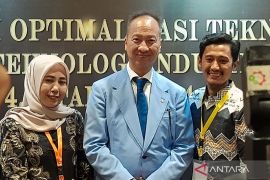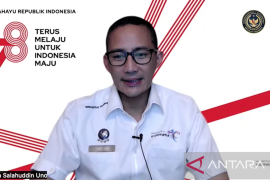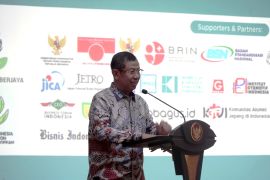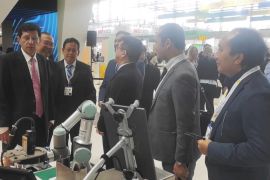"In the fourth industrial revolution, technology will become sophisticated. As a result, safety technology will increase, and work accidents will likely decrease," Dhakiri stated here on Tuesday.
However, Occupational Health and Safety (K3) must remain a priority for all companies.
The minister also expected that all parties should make concrete efforts towards the implementation of K3 in their respective environments.
"The culture of K3 should be realized in every place in the whole country," he noted.
The minister remarked that the digitalization of the industry influenced industrial relations, work relations, and work procedures for potential hazards in the company.
Hence, in terms of labor, the quality of human resources became a challenge in the Industry 4.0.
Many tasks, normally performed by humans, will be replaced by machines.
To this end, the Ministry of Manpower focuses on improving the skills of workers with various programs, including vocational education.
In the face of the Industry 4.0, the Indonesian government had earlier launched the Making Indonesia 4.0 Road Map as a clear strategy and direction in the readiness to enter and implement Industry 4.0 in the country.
The aspiration outlined in the Making Indonesia 4.0 Road Map is Indonesia`s target to be part of the 10 largest economies in the world by 2030, according to Head of Industrial Research and Development Agency (BPPI) of the Ministry of Industry, Ngakan Timur Antara.
The target is achievable, as it can be boosted by a 10-percent increase in net exports of the Gross Domestic Product, two-fold increase in productivity, and the creation of 10 million new jobs in 2030.
Hence, the government will remain focused on accelerating the country`s industrialization, as it will have multiplier effects on the national economy.
"Hence, the government is resolved to create a conducive investment climate," Antara noted here on Sunday.
The BPPI head stated that his side had taken strategic steps, such as by offering economic policy packages, incentives, and ease-of-doing business facilities.
The multiple effects of the policy included added values of raw materials, local workers` absorption, and increase in foreign exchange earnings from exports, taxes, and excise duties.
The efforts could accelerate the distribution and national inclusive and quality economic growth. This leads the government to carry out economic transformation for a shift from consumption- to manufacturing-based economy.
Reporting by Aubrey Kandelila, Azis K
Reporter: Antara
Editor: Sri Haryati
Copyright © ANTARA 2019












